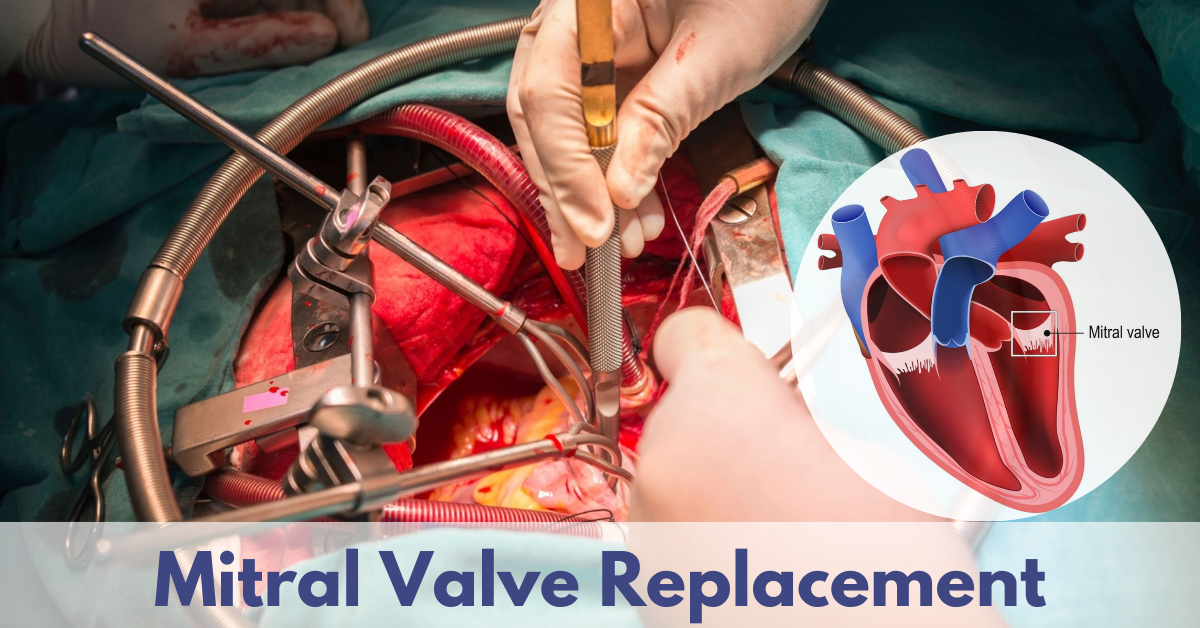03 Feb 2026
Rhinoplasty Revision Surgery in Mohali: Cost When Your First Nose Job Fails


Dr. Harinder K Bali
22 Jun 2025
Call +91 80788 80788 to request an appointment.
The mitral valve is a crucial component of the heart, regulating blood flow between the left atrium and left ventricle. When this valve malfunctions, it can lead to significant heart issues, including mitral regurgitation or stenosis. Mitral valve surgery is a specialized cardiac procedure aimed at repairing or replacing this essential valve to restore normal heart function and ensure adequate blood flow. At Livasa Hospitals Mohali, our expert cardiac surgeons employ advanced techniques to deliver safe and effective treatments tailored to each patient's unique needs.
Heart disease remains one of the leading causes of mortality worldwide, with valve disorders representing a significant subset of these cases. In India, the prevalence of heart diseases is growing, necessitating an increase in awareness and access to cardiac procedures like mitral valve surgery. In this blog, we will explore the various aspects of mitral valve surgery, including causes, symptoms, treatment options, and the expertise available at Livasa Mohali.
Mitral valve disorders are primarily categorized into two types: mitral regurgitation and mitral stenosis. Understanding these conditions is crucial for recognizing the need for surgical intervention.
Early detection and treatment of these disorders are critical in preventing serious complications, such as heart failure. At Livasa Hospitals, we emphasize comprehensive assessments to determine the appropriate surgical approach based on individual needs.
Several factors can lead to the development of mitral valve disorders. While some of these factors may be hereditary, others may develop as complications from other health conditions. Key causes include:
Understanding these causes helps patients consider their risk factors and ensures timely consultation for evaluation and potential intervention at our facility in Mohali.
Symptoms can vary widely among individuals, and some may even experience severe valve dysfunction without noticeable symptoms. Common signs of mitral valve disorders include:
Identification of these symptoms requires close monitoring and consultation with healthcare professionals. If you are experiencing any of these symptoms, we encourage you to contact our cardiac team at Livasa Mohali for an evaluation.
Accurate diagnosis is essential for determining the best treatment approach. At Livasa Hospitals, we utilize a range of diagnostic techniques, including:
These diagnostic methods enable our expert cardiologists to develop tailored treatment plans and ensure timely intervention.
Treatment options for mitral valve disorders primarily depend on the severity of the condition. At Livasa Hospitals, we offer a comprehensive range of surgical interventions, including:
| Procedure Type | Indications | Recovery Time |
|---|---|---|
| Mitral Valve Repair | Recommended for regurgitation cases to restore normal valve function. | 1-2 weeks. |
| Mitral Valve Replacement | Indicated in severe cases where repair is not feasible. | 2-3 weeks. |
| Minimally Invasive Mitral Surgery | Used for eligible patients to reduce recovery time. | Less than a week. |
The choice of procedure is based on multiple factors, including patient health, age, and the severity of the valve disorder. Our cardiac specialists at Livasa Mohali consult with each patient to discuss the risks and benefits of each option thoroughly.
The success of any surgical procedure, including mitral valve surgery, highly depends on the expertise of the cardiac surgeon. At Livasa Hospitals Mohali, we take pride in our team of highly trained and experienced cardiac surgeons equipped with advanced surgical techniques and technologies.
Our cardiologists work collaboratively with specialized staff, including anesthetists and nurses, to create a tailored surgical plan based on each patient's specific circumstances. This multi-disciplinary approach enhances patient care and optimizes surgical outcomes. Continuous follow-up care ensures that patients recover effectively and receive all necessary support during their healing journey.
Recovery from mitral valve surgery varies by individual and the type of procedure performed. Proper aftercare is crucial for a successful recovery. Recommendations may include:
Understanding the recovery process can empower patients and their families. At Livasa Hospitals, we ensure that patients are well-informed and appreciated throughout their recovery journey.
Mitral valve disorders pose significant challenges that can affect quality of life. However, with advances in cardiac surgery and the expertise available at Livasa Hospitals Mohali, patients have access to effective treatments that can restore normal heart function. The combination of thorough diagnosis, skilled surgical intervention, and dedicated post-operative care ensures that patients can lead fulfilling lives after mitral valve surgery.
If you or a loved one is experiencing symptoms related to mitral valve disorders, don’t hesitate to book an appointment with our expert team at Livasa Hospitals Mohali today. Together, we can work towards better heart health and improved quality of life.
Rhinoplasty Revision Surgery in Mohali: Cost When Your First Nose Job Fails
Plastic Surgery After Massive Weight Loss: Body Contouring Packages in Mohali
ENT + Cosmetic in Mohali: Septoplasty for Breathing with Cosmetic Rhinoplasty Offers
Livasa Healthcare Group Corporate Office,Phase-8, Industrial Area, Sector 73, Sahibzada Ajit Singh Nagar, Punjab 160071
| Mohali | +91-99888 23456 |
| Amritsar | +91-99887 49494 |
| Hoshiarpur | +91-99883 35353 |
| Nawanshahr | +91-75081 82337 |
| Khanna | +91-98888 05394 |